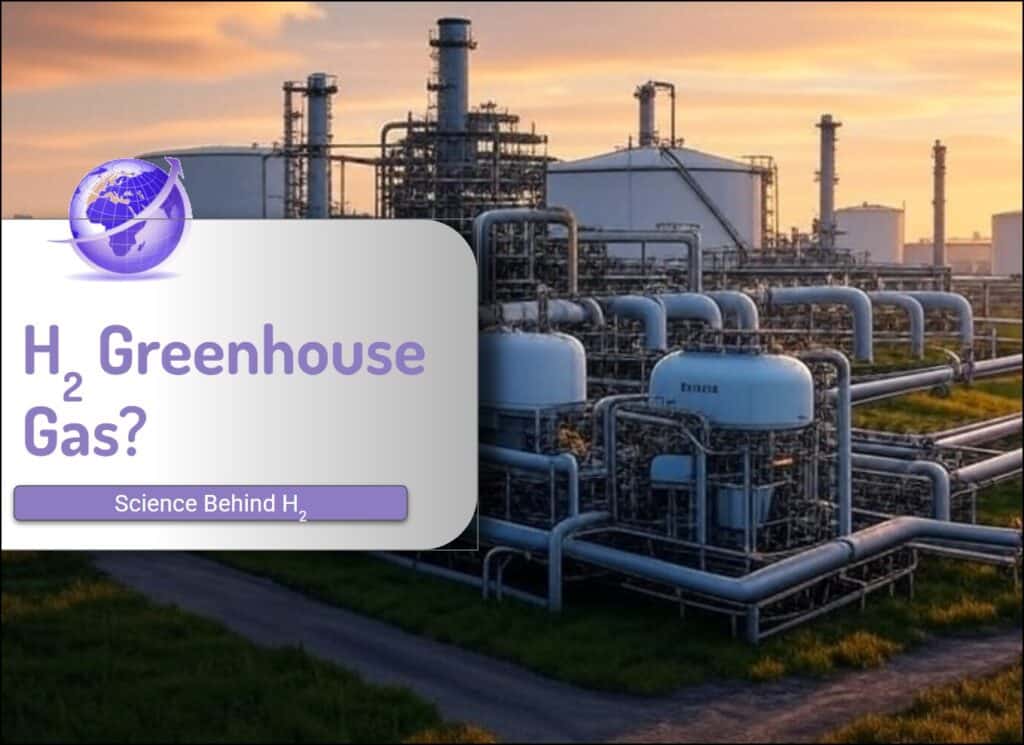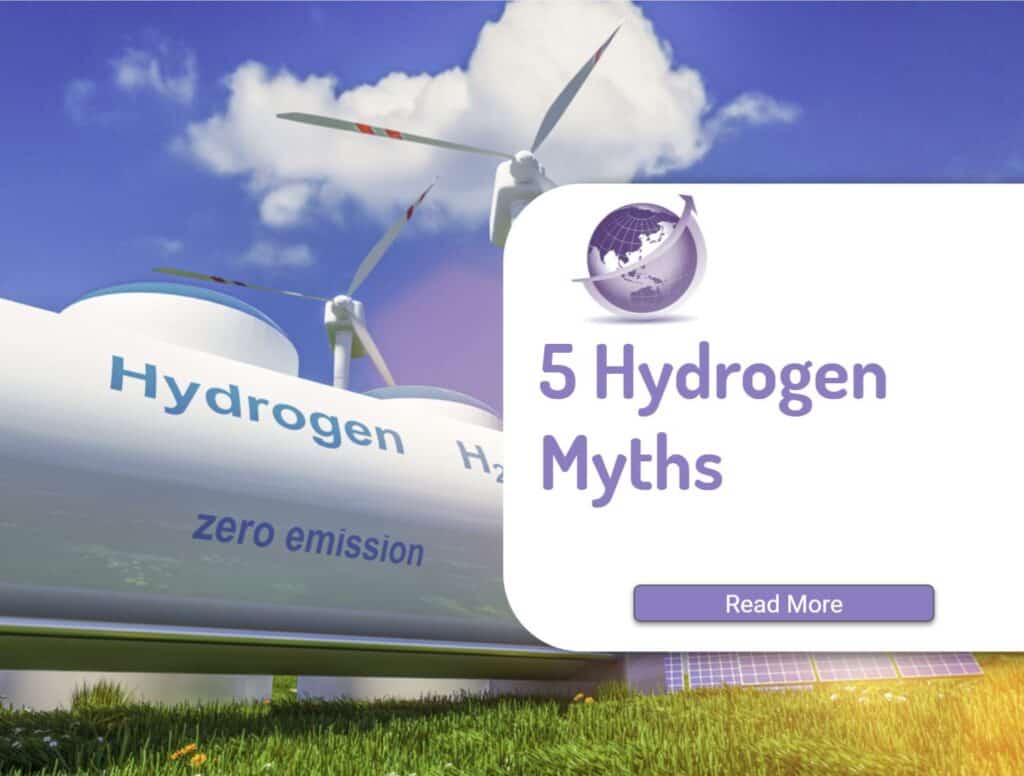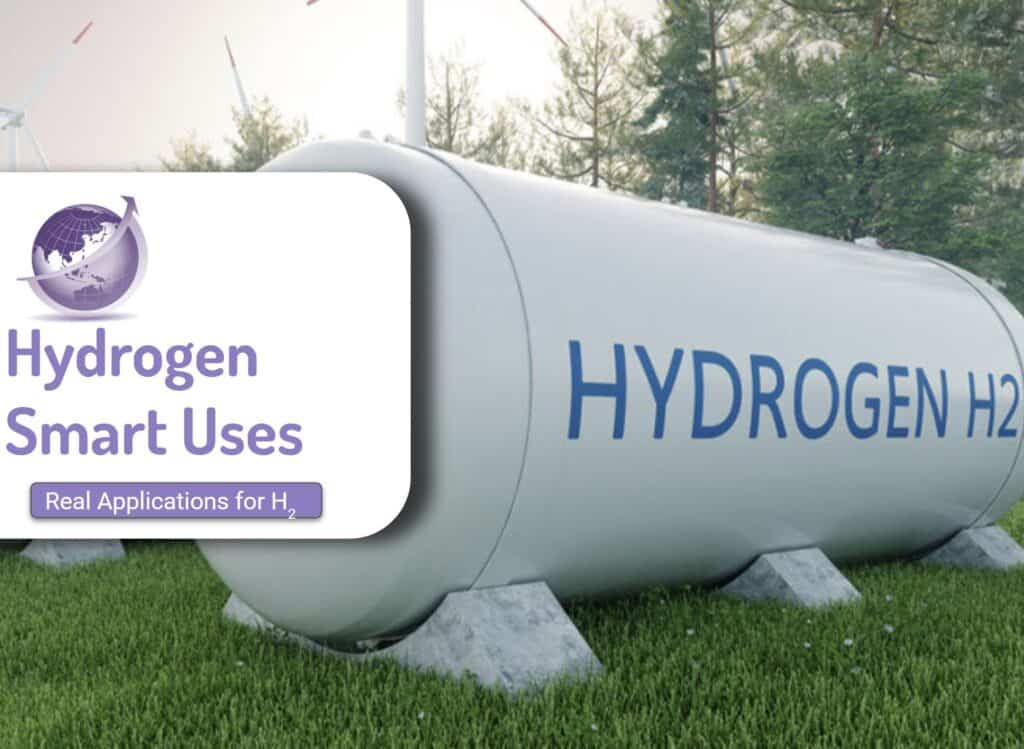A common argument against hydrogen is that hydrogen is a greenhouse gas directly and indirectly and so it it worthwhile to understand the exact process and pros and cons of using H2 as part of the solution for zero emissions. Part of the arguments against has been promoted by the fossil fuel industry to continue to burn fossil fuels. Part is true. Part is not and it is very complicated. [7]. Studies suggest greenhouse gas warming potential is about 11.6 times more than CO2 but there is little agreement.
With all gases, there is some escape by the gas. As H2 is the smallest molecule some estimate that H2 loss is about 1% every time it is handled. At manufacture. At compression. At valves. At Storage and at final use. If the product goes through this process 6 to 8% loss is likely. About 100 million tonnes of black hydrogen is used.
The bottom line? Hydrogen has a narrow but essential role in replacing fossil-based hydrogen feedstocks in heavy industry. Beyond that, electrification offers cheaper, more efficient, and faster pathways to a cleaner energy future. Michael Barnard 2025
Pathways for Hydrogen is a Greenhouse Gas Path
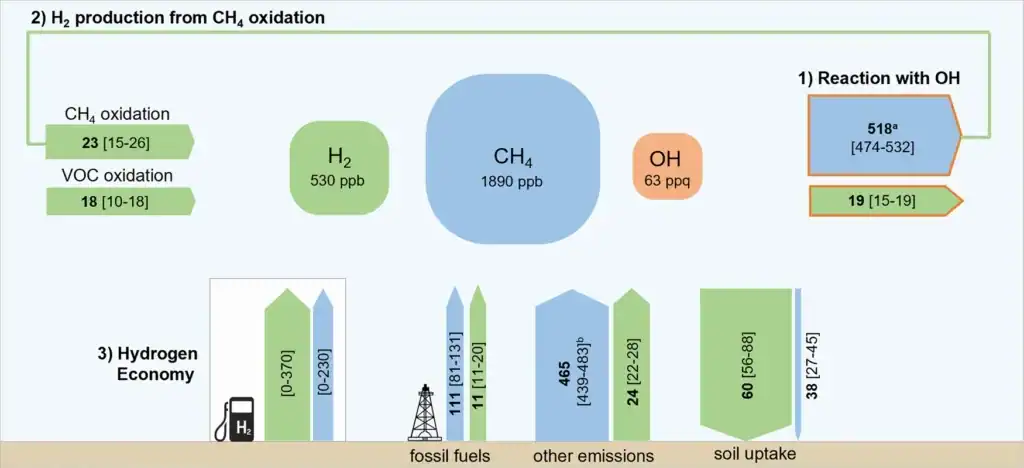
Pathway:
In the atmosphere, methane is primarily removed by reacting with the hydroxyl radical (OH), often called the “detergent of the troposphere.”
- CH₄ + OH → CH₃ + H₂O
Hydrogen gas (H₂) also reacts with the hydroxyl radical:
- H₂ + OH → H + H₂O
How hydrogen emissions can indirectly inhibit atmospheric methane breakdown:
If large amounts of hydrogen leak into the atmosphere (e.g., from a widespread hydrogen economy), they can compete with methane for the available OH radicals. Since there’s a limited amount of OH generated, an increase in H₂ could lead to less OH being available to break down methane. This would prolong methane’s atmospheric lifetime, despite hydrogen itself having a relatively short atmospheric lifespan (around 2 years).
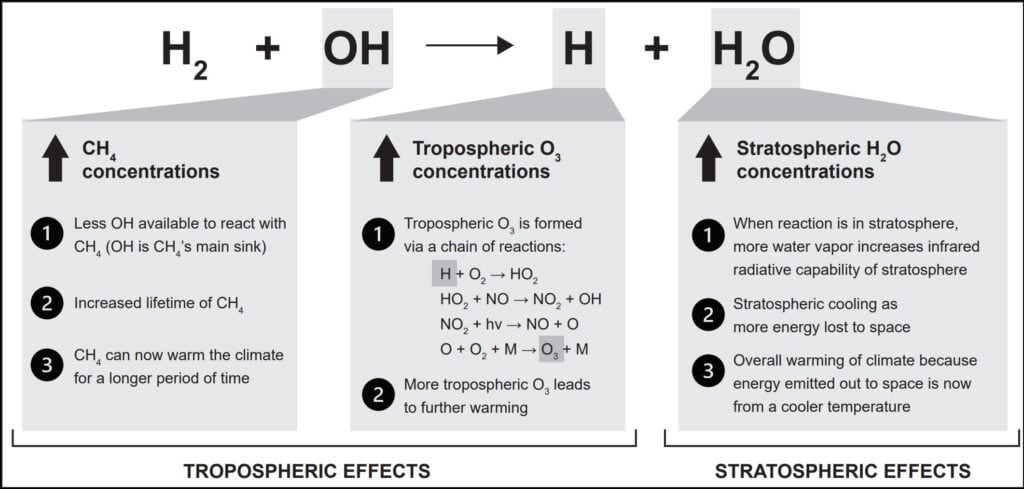
Arguments For and Against (atmospheric context):
Arguments FOR (hydrogen emissions inhibiting atmospheric methane breakdown):
- Competition for OH radicals: The primary argument is the direct competition for OH radicals, leading to a reduction in the rate at which methane is removed from the atmosphere.
- Increased methane lifetime: If methane breakdown slows, its concentration in the atmosphere could increase, leading to a greater warming impact, even if the hydrogen itself is a clean fuel.
- Near-term warming impact: This effect could be particularly significant in the near term (decades), potentially offsetting some of the climate benefits of switching to hydrogen.
Arguments AGAINST (minimal impact or long-term benefits):
- Hydrogen’s short atmospheric lifetime: Hydrogen doesn’t persist in the atmosphere for a long time compared to methane or CO₂, so its direct warming impact is minimal.
- Leakage rates are crucial: The extent of this problem depends heavily on hydrogen leakage rates throughout its production, transport, and use. If leakage rates are kept low, the effect might be negligible.
- Long-term benefits of hydrogen economy: In the long term (over a century), even with some leakage, a widespread hydrogen economy based on clean production is still expected to yield net climate benefits by displacing fossil fuels, which have far greater greenhouse gas emissions.
- Uncertainty in atmospheric chemistry: While the mechanism is understood, the precise quantitative impact of hydrogen leakage on global methane concentrations and climate forcing is still an active area of research with some uncertainties.
References
- Twenty Hydrogen Myths 2005 https://rmi.org/insight/twenty-hydrogen-myths/
- Debunking The Myth: Hydrogen Is Not A Practical Or Cost-Effective Fuel https://www.linkedin.com/posts/michael-barnard-42446_debunking-the-myth-hydrogen-is-not-a-practical-activity-7305946926909112322-WUld
- The Hype Returns: Joe Romm & Michael Barnard Revisit Hydrogen, 20 Years Later https://cleantechnica.com/2025/05/15/the-hype-returns-joe-romm-michael-barnard-revisit-hydrogen-20-years-later/
- The Hype About Hydrogen, Revised Edition: False Promises and Real Solutions in the Race to Save the Climate Joseph Romm 2025 https://www.amazon.ca/Hype-About-Hydrogen-Revised-Solutions-ebook/dp/B0F1DC5DFT
- Electrify: An Optimist’s Playbook for Our Clean Energy Future Saul Griffith · 2021 https://www.amazon.com.au/Electrify-Optimists-Playbook-Energy-Future/dp/0262046237
- Sand, M., Skeie, R.B., Sandstad, M. et al. A multi-model assessment of the Global Warming Potential of hydrogen. Commun Earth Environ 4, 203 (2023). https://doi.org/10.1038/s43247-023-00857-8
- I. B. Ocko and S. P. Hamburg, ‘Climate consequences of hydrogen emissions’, Atmospheric Chem. Phys., vol. 22, no. 14, pp. 9349–9368, Jul. 2022, doi: 10.5194/acp-22-9349-2022. https://acp.copernicus.org/articles/22/9349/2022/

